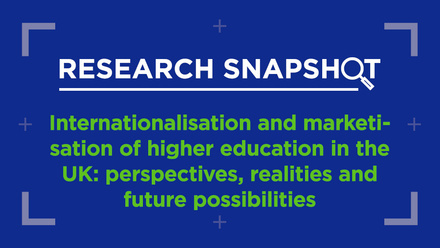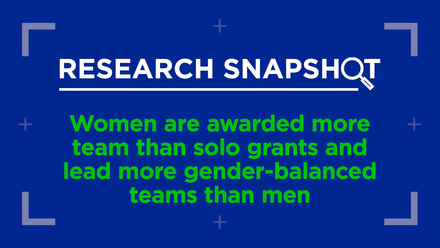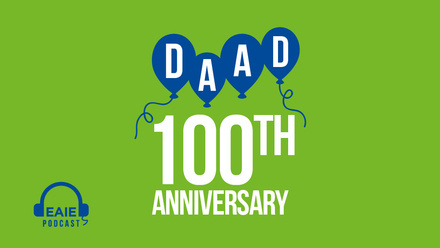5 challenges on the horizon for international education

Attempting to map out possible future effects on our work as international education professionals is of course something of an exercise in creativity. Nevertheless, keeping an eye on the horizon is an essential component of good practice in our field.
The business world is rounding off its first quarter, educators are nearing the halfway point of their first semester, and in much of the Northern Hemisphere the birds are singing and the flowers beginning to bloom. Personally, I have now been in Europe for two whole months, just long enough for the dust to start settling in my new office at the EAIE. Altogether it makes for a good moment to stop and take stock of the many moving parts that define our present moment in international higher education.
So, what might be some key issues for us to be attuned to in the field of international education as 2019 marches along? Five main considerations stand out to me.
Making the case for relevance
The demand for international education to demonstrate its value will continue to play out in crucial ways over the coming year. The dynamics of making the case for relevance will resonate at all levels – from such specific, localised matters as whether employability is a real outcome for the students graduating from a given programme, to more macro-level arguments affecting national policy connected to internationalisation in a world in which national sentiments run high. Certainly, considerable strides have been made in raising awareness about the mainstream and transversal relevance of internationalisation, but its natural alignment with other aspirations and imperatives facing the higher education sector today, as well as the opportunity for all stakeholders to reap its benefits, are not necessarily self-evident.
The way our community responds to the challenge of ‘telling the story’ of internationalisation may stand out as a defining aspect of the coming year
The way that our community responds to the challenge of ‘telling the story’ of internationalisation – as individuals, as institutions and collectively through the work of associations like the EAIE – may stand out as a defining aspect of the coming year. Coherent and appropriately contextualised arguments, solidly grounded in good data, will have a crucial role to play here.
Addressing inequity and inequality
Thankfully, awareness and open discussion of the realities of disenfranchised, underrepresented and outright abused groups and classes of people seem to be growing in many quarters. Yet, despite enhanced sensitivities, we continue to see enormous challenges when it comes to matters of ‘fair play’ and the competent embedding of practices designed to ensure meaningful inclusion. Our work in internationalisation is not exempt from these concerns. The need to critically assess our practice – the way we conceive of and approach our work, the stakeholders we involve internally and externally, and the outcomes we achieve – is increasingly urgent.
Why? For many of us, our societies and institutions are evolving rapidly. Talent and interest span all world regions and demographic profiles. This means that it’s not only the right thing to do to assure wide and representative participation across all dimensions of our work – which is directly connected to the EAIE core value of inclusiveness – but it’s also in the best interest of our pursuit of excellence, another core EAIE value. Gauging progress in our field in this area will be essential in 2019.
Expanding the focus on learning and teaching
Learning is at the heart of education, and the realisation that traditional approaches to cultivating learning may not be serving 21st-century students effectively has been gaining momentum in Europe and beyond in recent years. This is particularly so in the context of discussions about internationalisation. The tightly connected concepts of internationalisation of the curriculum and internationalisation at home are emerging as highly salient considerations in many corners of the world. Many educators are sensing the need for substantive change.
Much work needs to be done on new approaches to teaching and learning, which will be an important frontier trend to monitor in 2019
There’s good reason why we should expect to see greater attention paid to this core issue of how people best learn today. Increasing numbers of students in higher education present profiles that are distinct from the student populations of a generation ago. What they need to learn and how they acquire and use knowledge is different, and higher education institutions need to adapt. For example, facilitating learning that better positions students for success in the dynamic world of work is vital. The EAIE is paying attention to these dynamics in a variety of ways: not least of which, the upcoming Spring 2019 issue of the EAIE’s Forum magazine will purposefully explore “the evolving classroom.” Much work needs to be done on new approaches to teaching and learning, which will be an important frontier trend to monitor in 2019.
Owning up to environmental responsibility
At the EAIE Annual Conference in 2018, the winning poster was focused on “Supporting sustainable development in international higher education through the EAIE”. The poster authors, Scott Blair and Laura Howard, issued a compelling call to embed “social responsibility, sustainability literacy, and behavioural change into international higher education,” specifically through the “greening of comprehensive internationalisation”.
Their insights could not be more timely or serious. Reports indicate that the planet is under profound environmental stress. As international educators, we consider the world to be our canvas – forging partnerships internationally, enabling faculty and students to travel widely, helping to cultivate our own and others’ skills as global citizens. Though laudable objectives, we bury our heads in the sand if we fail to note that our actions often exert punishing effects on the planet. Ideally, responsible internationalisation in 2019 should both bring the essentials of environmental impact into ever sharper focus, and help us to better attend to the United Nations’ Sustainable Development Goals.
Bracing for Brexit
When asked in a brief December 2018 interview what the biggest challenge in her career in internationalisation has been, EAIE Vice President Michelle Stewart stated unequivocally, “Brexit. It goes against everything I’ve been working towards most of my career.” Brexit, in all of its political and economic complexity, will not only be a watershed moment globally; it will also stand out as one of the most profoundly disruptive and unsettling developments witnessed by the European higher education community in the modern era.
Brexit will stand out as one of the most profoundly disruptive and unsettling developments witnessed by the European higher education community in the modern era
Where does that leave us? We speak regularly these days of the need to pool talent and perspectives in order to tackle the world’s most vexing problems. We need to act substantively on that notion in 2019. As one step in this direction, the EAIE’s summer 2019 issue of Forum magazine will feature a wide-ranging examination of the unprecedented practical and philosophical challenges of Brexit, as well as present possible solutions from a diversity of perspectives. Rising above the rancour and respectfully engaging the sense of disconnection that brought us to this point is a collective responsibility and will be another central focal point for the year ahead.
All told, the coming year looks to be both exciting and challenging, and will call upon all of us to bring our brightest, boldest and best selves to the work ahead.






